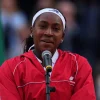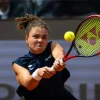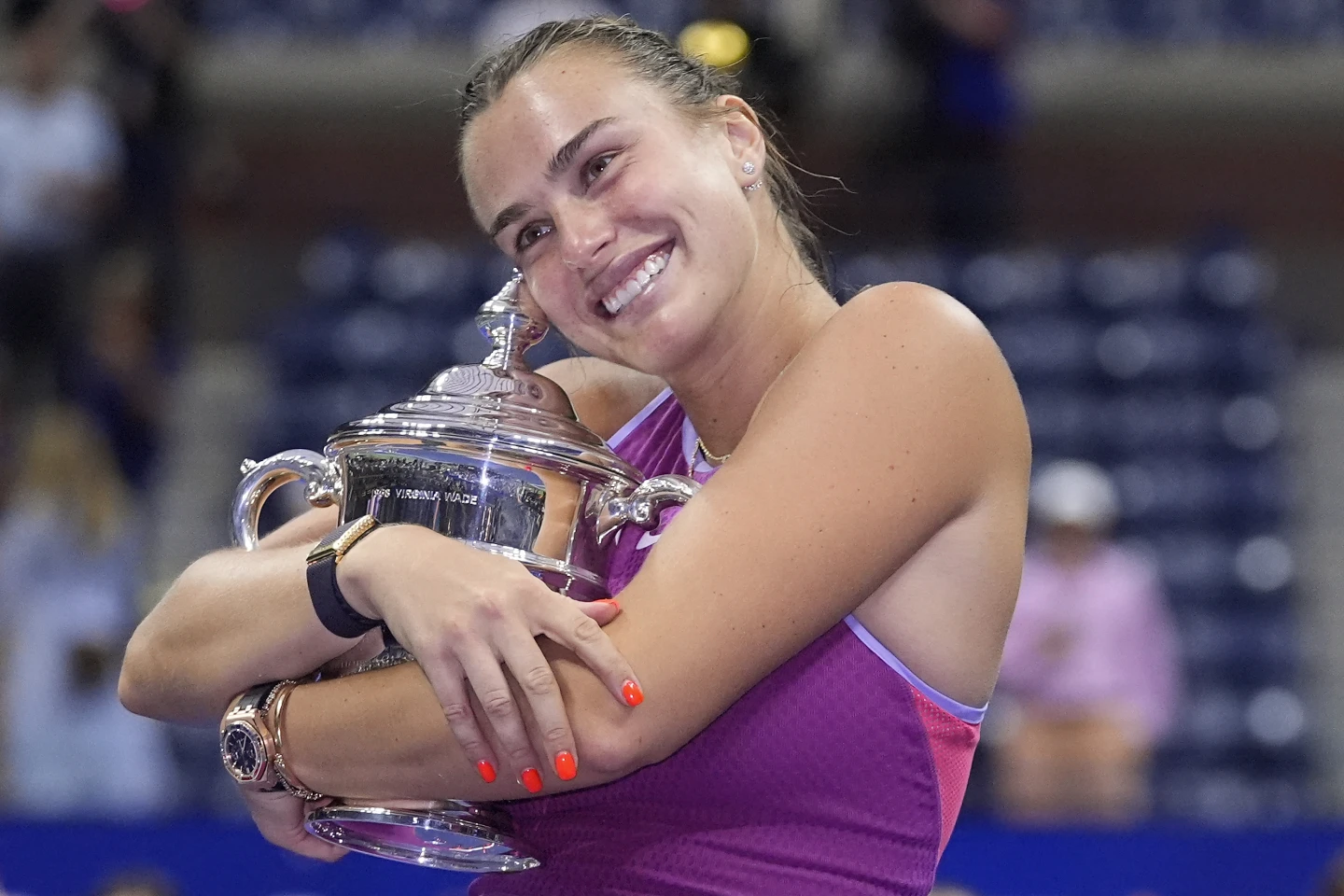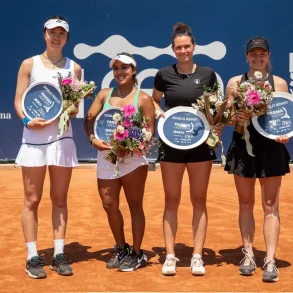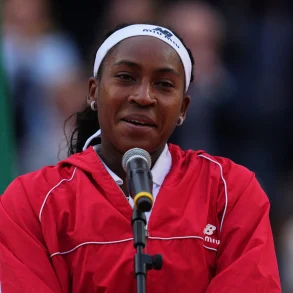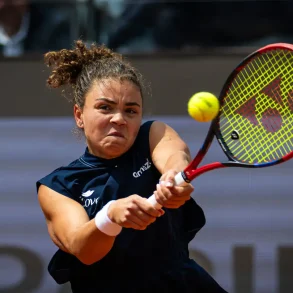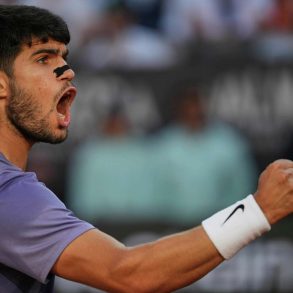Aryna Sabalenka left the U.S. Open in tears a year ago after finishing as the runner-up. She had also faced tough losses in the semifinals in the two years before that. But on Saturday, after winning her first title at Flushing Meadows and her third Grand Slam, Sabalenka was in a light-hearted mood.
Sabalenka, the No. 2 seed, defeated No. 6 Jessica Pegula with scores of 7-5, 7-5 in an exciting final held under the closed roof of Arthur Ashe Stadium. She showed her usual power and mixed in some variety to add this victory to her Australian Open titles from the past two seasons.
“I had a lot of tough lessons here … especially last year,” said Sabalenka, a 26-year-old from Belarus. She won the last two games of the first set and the last four games of the match.
“In those tough moments (Saturday), I was just trying to stay strong and remind myself that I’ve been through a lot and I’m strong enough to handle the pressure.”
At her news conference, Sabalenka, sitting next to the U.S. Open trophy, mentioned “a lot of challenges” outside the court. She had lost her father in 2019, her ex-boyfriend earlier this year, and had to pull out of Wimbledon in July due to a shoulder injury.
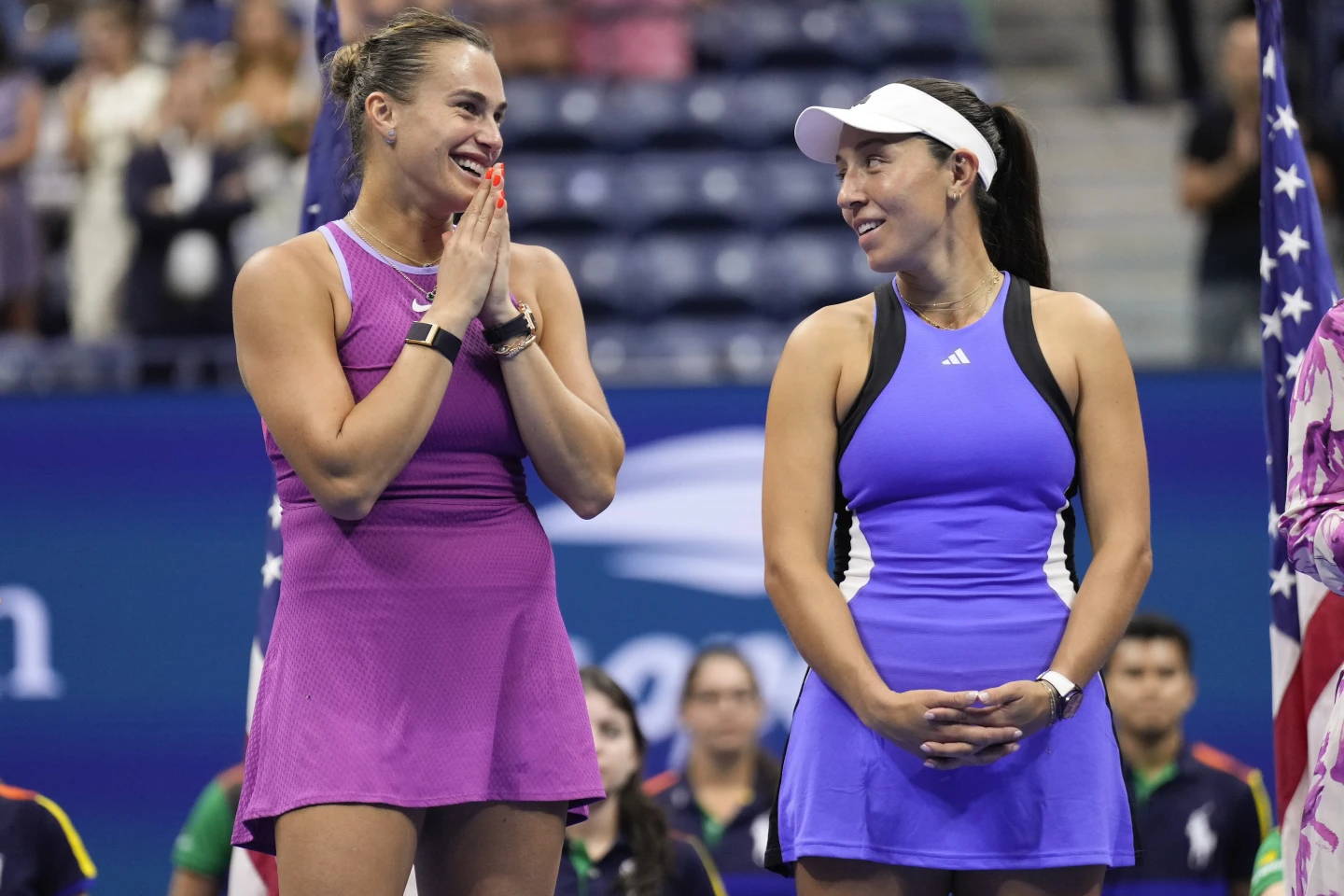
“After I lost my father, it’s always been my goal to put our family name in the history of tennis,” she said. “Every time I see my name on that trophy, I’m so proud of myself, and I’m proud of my family for never giving up on my dream and for doing everything they could to keep me going.”
She was also motivated by “all those tough losses in the past here,” including her semifinal defeats in 2021 to Leylah Fernandez and in 2022 to No. 1 Iga Swiatek.
The most touching moment was last year when Sabalenka was shaken by the crowd at Ashe, lost a set lead, and was beaten by Coco Gauff. This year, though, Sabalenka faced a more supportive crowd, as they cheered for her and responded when she asked for more noise.
After winning her 12th straight match, Sabalenka expressed her thanks to the fans, jokingly offering “Drinks on me” after a previous win.
There were also some light-hearted moments on Saturday. Sabalenka’s coach, Anton Dubrov, received a smaller version of the champion’s trophy for his part in her victory.
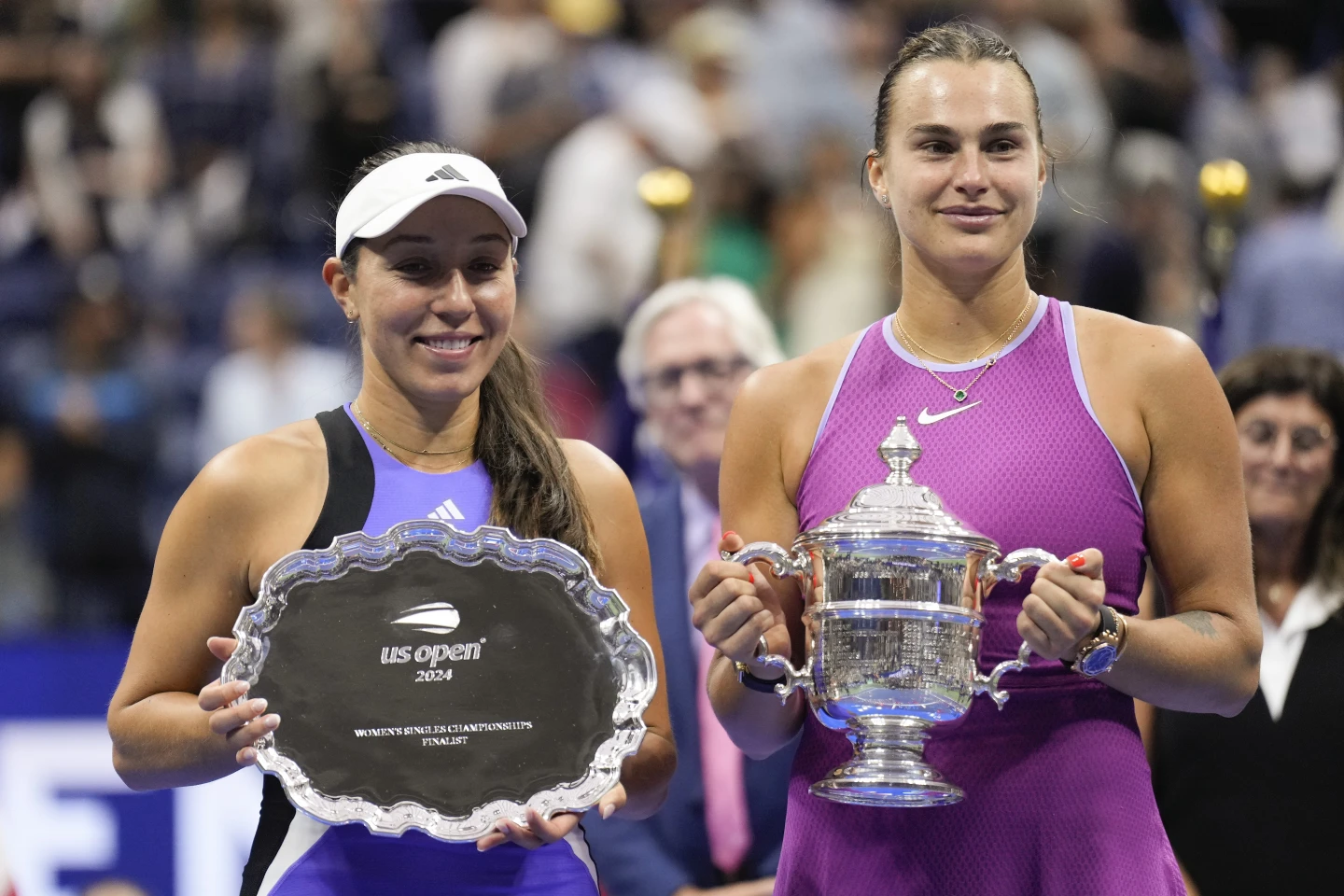
Sabalenka playfully commented that the smaller trophy looked “sad” compared to the real one. She also joked about having a hangover if they both drank from their trophies.
Jessica Pegula, who is from New York and whose parents own the NFL’s Buffalo Bills and NHL’s Buffalo Sabres, was in her first major final at age 30. Over the past month, she won 15 of 17 matches, with both losses coming to Sabalenka.
“Everyone is like, ‘Congrats! Amazing tournament!’” Pegula said. “I’m like, ‘Eh, whatever.’”
Despite trailing after Sabalenka won five games in a row to take the first set and lead 3-0 in the second, Pegula did not give up. She showed her frustration by hitting a ball off the video wall, knocking off a small panel.
Maybe that let some of the pressure off, because Pegula quickly took control, winning five games in a row to lead 5-3. However, when she served at 5-4 with a chance to push the match to a third set, Pegula let Sabalenka break her serve.
“She played some big tennis in big moments,” Pegula said.
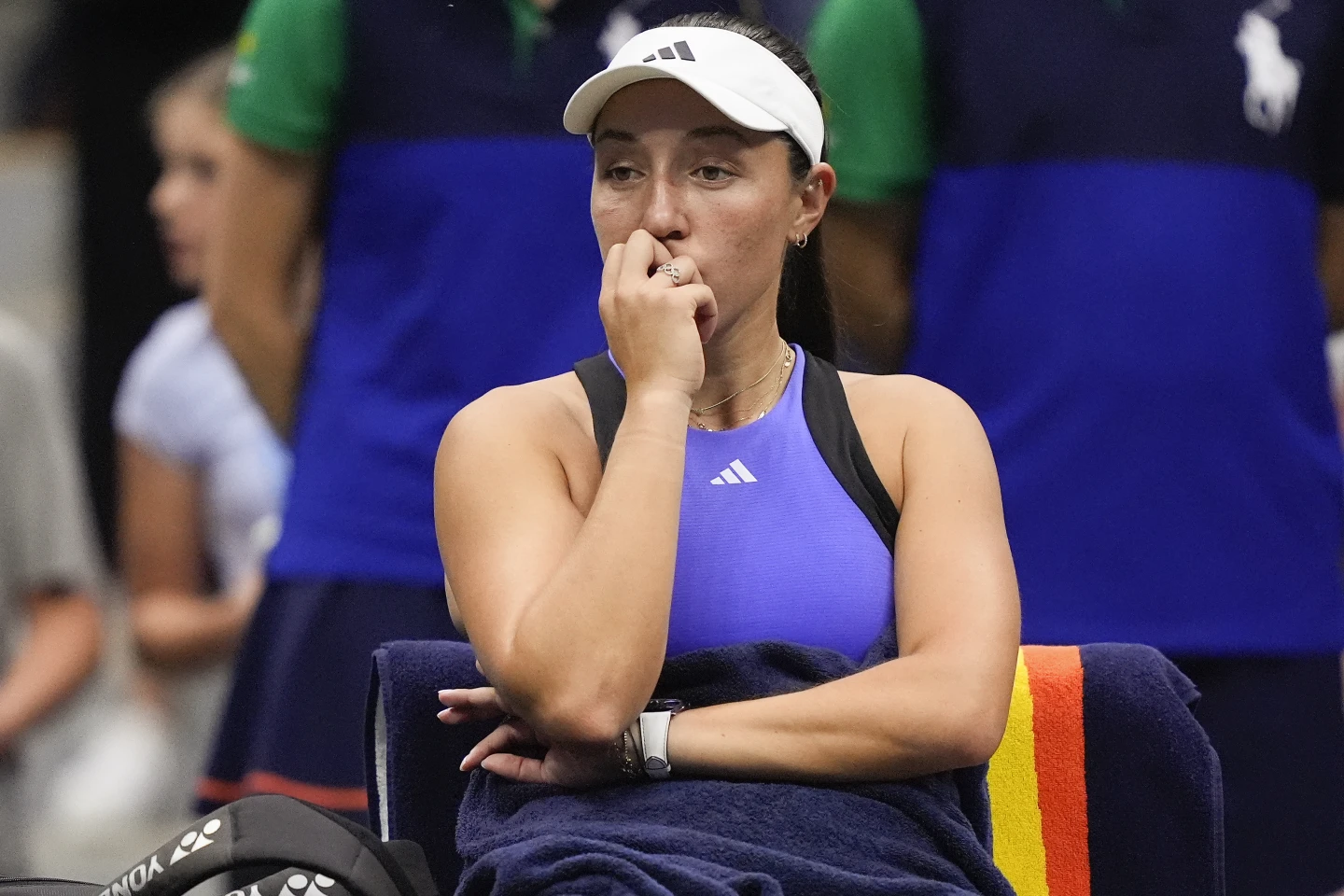
Sabalenka is usually very expressive, and her body language often shows how things are going. But at the start of the match on Saturday, it was hard to tell how she was feeling against Pegula, who had previously beaten Swiatek in the quarterfinals.
Even when she fell behind early, Sabalenka stayed calm, turning her back and taking deep breaths as other sports stars like Stephen Curry, Lewis Hamilton, and Noah Lyles watched from the stands.
Once Sabalenka got her powerful shots working—her forehands were the fastest of the tournament, quicker than any other player’s— it became clear that the result would hinge on her performance.
By the end, the stats showed this: Sabalenka had many more winners than Pegula, 40 to 17, but also more unforced errors, 34 to 22. Sabalenka dominated most rallies but also used some drop shots and smart volleys.
“I was happy I was able to fight back and give myself a chance,” Pegula said, “but in the end, it wasn’t enough.”
Sabalenka did show clear frustration at one point. At 5-all in the first set, after double-faulting and facing a break point, she leaned forward and hit her racket against the court four times.

